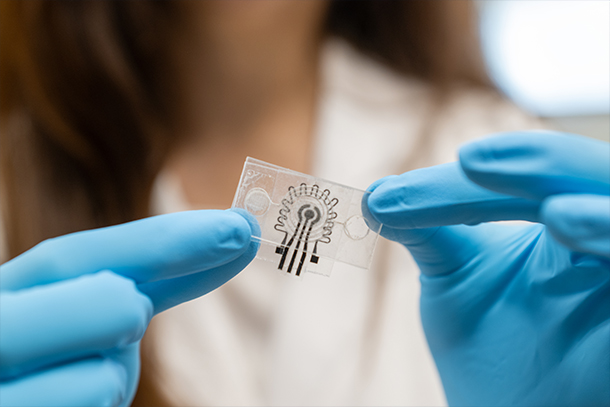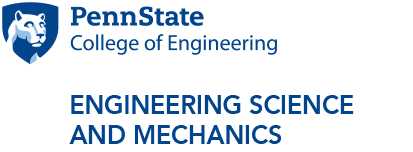Engineering Science Undergraduate Options

The engineering science undergraduate options are designed to allow for a concentration in an engineering discipline that cannot be easily pursued in other undergraduate degree programs at Penn State, and they reflect cutting-edge fields in engineering. All options require three credits of engineering design that are chosen in consultation with the student's academic adviser. In addition, each option allows the pursuit of 12 credits of foundational elective coursework and 12 credits of technical elective coursework within the option. Those 24 credits and the six credits of the senior capstone provide 30 credits of concentration within each option.
Experimental Mechanics and Materials
The experimental mechanics and materials option explores science and engineering aspects of diverse classes of engineering including polymers, metals, ceramics, and composites with a focus on experimental mechanics and materials behavior.
Materials and Design in Manufacturing
The materials and design in manufacturing option allows students to focus their elective courses on the design and manufacturing of structural materials, including polymers, metals, ceramics, and composites.
Micro- and Nano-structured Devices for Biological and Biomedical Applications
The micro- and nano-structured devices for biological and biomedical applications option focuses on the science, design, and manufacturing of biological and/or biomedical systems and devices using specialized electronic, optical, and polymeric materials.
Neural Engineering
The neural engineering option in engineering science and mechanics provides students with fundamental engineering training and advanced technical work at the intersection of engineering and neuroscience.
Semiconductor and Quantum Materials Devices
The semiconductor and quantum materials devices option focuses on the science, design, and manufacturing of electronic and quantum devices using conventional and modern semiconducting, insulating, and conducting materials.
Signals, Systems, and Sensing
The signals, systems, and sensing option is designed to provide the students with the fundamentals of signal processing, sensors, system identification, and related state-of-the-art applications.
Theoretical and Computational Mechanics
The theoretical and computational mechanics option provides students with the foundational knowledge needed to construct rigorous physics-based and data-driven models for a wide range of natural and engineered systems.
Acoustics
The acoustics option provides students with the foundational knowledge to construct rigorous physics-based models for a wide range of natural and engineered acoustical and vibrational systems.
Self-designed
The self-designed option in engineering science is for students whose interests do not align well with one of the other available options. Working with their academic adviser, students who pursue this option will design a program of study that includes classes and a capstone project that allows them to achieve their goals.
Undergraduate Options
- Overview
- Experimental Mechanics and Materials Option
- Materials and Design in Manufacturing Option
- Micro- and Nano-structured Devices for Biological and Biomedical Applications Option
- Neural Engineering Option
- Semiconductor and Quantum Materials and Devices Option
- Signals, Systems, and Sensing Option
- Theoretical and Computational Mechanics Option
- Acoustics Option
- Self-designed Option
-
Contact
- Gary L. Gray
Associate Professor and Associate Head for Undergraduate Programs
euler@psu.edu



